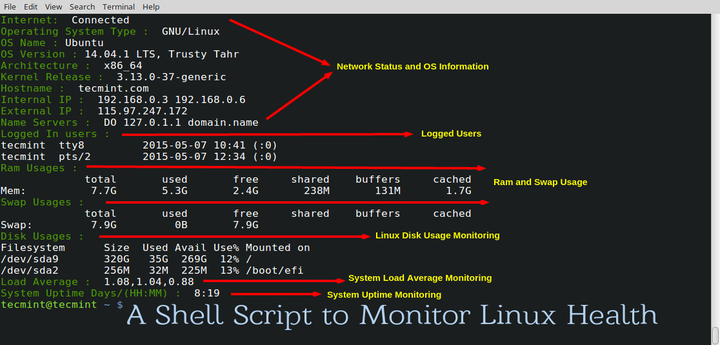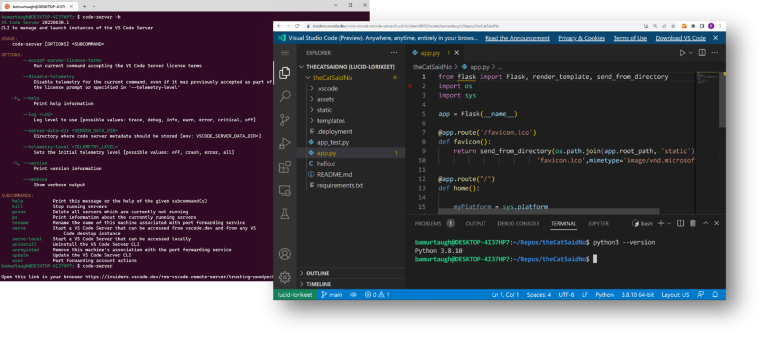There is no dependency required to use this shell script on a standard Linux Distribution. Moreover the script don’t requires root permission for execution purpose. However if you want to install it, you need to enter root password once.
Password:
Congratulations! Script Installed, now run monitor command
To install "tecmint_monitor.sh" script, simple use -i (install) option as shown below.

The duty of a System Administrator is really tough as they have to monitor the servers, users, logs, create backups, and so on. For the most repetitive tasks, many administrators write scripts to automate their day-to-day work.
monitor
Don’t forget to share your thoughts or your script with us. We’re here to help you. Thank you for all the love you have given us. Keep Connected! Stay tuned.
How Do I Install and Run Shell Script
wget https://tecmint.com/wp-content/scripts/tecmint_monitor.sh
chmod 755 tecmint_monitor.sh
If you feel like editing the script and taking it further, you are free to do so, giving us proper credit. Also, share the updated script with us so that we can update this article and give you proper credit.
First, use following wget command to download the monitor script "tecmint_monitor.sh" and make it executable by setting appropriate permissions.
./Path/to/script/tecmint_monitor.sh
Here, we have written a shell script that aims to help newbies by providing information about their system, network, users, load, RAM, host, internal IP, external IP, uptime, etc. While it may not automate all tasks of a typical system admin, it can be helpful in certain situations.
./tecmint_monitor.sh -i
monitor
monitor -v
tecmint_monitor version 0.1
Designed by Tecmint.com
Released Under Apache 2.0 License
Conclusion
We’ve received a few complaints that the script is not working on some Linux distributions. One of our regular readers, Mr. Andres Tarallo, has taken the initiative and made the script compatible with all Linux distributions. You can find the updated script on GitHub.
- Internet Connectivity
- OS Type
- OS Name
- OS Version
- Architecture
- Kernel Release
- Hostname
- Internal IP
- External IP
- Name Servers
- Logged In users
- Ram Usages
- Swap Usages
- Disk Usages
- Load Average
- System Uptime
We have taken care of formatting the output to a certain extent. The script doesn’t contain any malicious content and it can be run using a normal user account. In fact, it is recommended to run this script as a user and not as root.
You are free to use, modify, or redistribute the piece of code below, provided that you give proper credit to Tecmint and the author. We have customized the output to ensure that only the required output is generated.
Check the installed version of script using -v (version) switch.
Additionally, we have utilized variables that are typically unused by the Linux system and are likely available.
As soon as you run the command you get various System related information which are:





